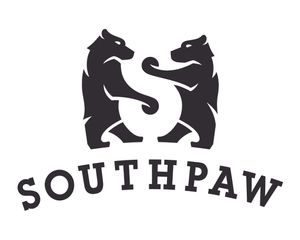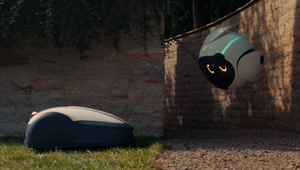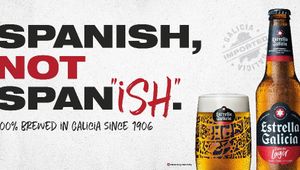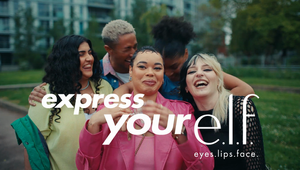
DE&I: Accelerating Change with Andy Peel

Andy Peel joined UK agency Southpaw’s flourishing creative department in 2021, fresh from a five-year stint as senior creative at Pulse Creative, part of The&Partnership’s on-site agency for News UK. There he worked across a number of brands within the News UK family including The Times and The Sunday Times, The Sun and the Wireless Group, including talkSPORT. Peel’s prodigious talent has earned him multiple awards including D&AD, Cannes and Creative Circle honours.
At Southpaw, Peel leads the day-to-day creative output across a range of clients within the agency’s automotive and alcohol portfolios, seeking ways to scale Southpaw’s offering with key accounts.
He’s a dedicated mentor for young creative talent. As Director of the Young Creative Council - something he’s been a part of for over a decade - he has experience and passion for nurturing young and diverse talent to bear at the agency.
LBB> What drew you to the field of DE&I?
Andy> As a white, middle-class, heterosexual, childless male, I’m an obvious candidate, right?
Since 2011, I’ve been part of the Young Creative Council (YCC), which focuses on creating opportunities for everyone, based solely on them wanting to be part of this exciting industry. Over the years that’s meant I’ve looked at the many challenges that junior talent has encountered at the beginning of their career, and then tried to influence change in some small way.
I also always wanted to be an ally in a world where from the outside, I may be perceived as part of the problem.
LBB> Before it became your job role, what was your specialism? And how did you get involved?
Andy> I’m an associate creative director by day. Making ads for various global brands across every media channel and budget at Southpaw in Tunbridge Wells.
I fell into the world of DE&I through my work with the YCC, which I still deem to be one of my many side hustles.
LBB> There’s a lot of frustration around the industry’s glacial pace when it comes to improving DE&I across all sorts of axes. What’s getting in the way?
Andy> Lots of things. The fact that agencies are focused on creating work for clients and ultimately keeping the money coming in, is always considered the priority. Unless you’ve got people in the agency that are specifically dedicated to DE&I, it’s often an afterthought. It shouldn’t be, but it is. What’s frustrating is it’ll suddenly become a priority through unforeseen circumstances – someone leaving, complaining, shareholders need to hit targets etc – rather than it being part of structured plan.
I also understand we can’t just solve all the issues overnight. For instance, how many agencies can suddenly renovate a building to make it more accessible? Or instantly allow everyone in the agency to work flexi-hours/shorter weeks to suit childcare needs? Or hire diverse talent if they’ve been put off the industry many years beforehand through a lack of training, support, or role models?
LBB> Outside of the advertising industry, where do you see examples of large-scale meaningful progress (if at all), and what should our industry learn from it?
Andy> As a keen football fan, the women’s game is definitely feeling more progressive right now. Since England won the Euros, there’s been a greater spotlight on it in the UK, and that has allowed it to become a platform for open and honest conversations across lots of DE&I issues.
Whether that’s about pay, diversity in the national team, the disparity around career pathways for young players, inadequate training facilities and stadiums compared to their male counterparts, or even role models like the England captain, Leah Williamson, talking about her endometriosis – nothing is off the table.
This has seen positive action around things like gender pay equality for players representing their country, maternity leave provisions for players, supporting openly gay players, and clubs changing their kits to have darker-coloured shorts so that they can continue to perform at their highest level while on their periods.
While there are still things that can be improved, it feels more inclusive and progressive than the men’s game for both players and supporters.
LBB> The dimensions of DE&I can differ somewhat according to geographic/cultural context - I’m curious, where you’re based, what are the big issues or most urgent elements of DE&I that you need to address?
Andy> Southpaw is based in Tunbridge Wells, where house prices are high, private schools are plenty and many of the middle classes take advantage of the good commuter links into London. In pre-covid times that meant the talent pool wasn’t as diverse as perhaps we would’ve hoped.
We’re now office-based two days a week and three days wherever we want, allowing us now to attract talent from further afield and at different stages of their career and personal life.
The team is made up of many mums and dads, and the work/life balance is very good. There’s never any shame or awkwardness attached to people having to arrive late or leave early for childcare provisions. They’re trusted to get the work done around their daily schedule.
We also have a set of values we like to live by. You could call them guidelines, codes, principles or teachings but we like to call them BOB (Book of Bears) values. That means whoever you are, you’ll always feel part of Southpaw.
LBB> In your role, what have been some of the most meaningful projects or policies you’ve been involved in regarding DE&I?
Andy> Outside of Southpaw, I run the Young Creative Council that supports junior talent entering the industry. As part of this, I look after the Placement Poverty Pledge (PPP) initiative. Since 2015 we’ve signed up lots of agencies to have promised to pay at least the National or London Living Wage to people while they’re on placements. As someone who experienced lowly paid placements when I started out over a decade ago, it’s gone some way to support new talent in chasing their dream.
I’ve also helped host Pride Crits, a portfolio evening for the LGBTQIA+ community, where creatives already in the industry could offer advice and be visible role models to the next generation of talent.
LBB> We often see DE&I siloed or pigeonholed as an HR issue - what’s the key to ensure that it’s embraced as an agency-wide or industry-wide responsibility?
Andy> As a creative I’m acutely aware of DE&I and the benefits that a diverse group can bring to insights and ideas.
When the aim is to create work for clients that feel one-of-a-kind, the people in the agency should be like that too. Each person brings their own individual quirks, experiences, and current circumstances to work, and that should ultimately create more opportunities to produce advertising that is more rounded and appeals to a wider audience.
LBB> Covid-19 changed things up across the industry. On the one hand it opened up remote working opening up opportunities to those who can’t afford city living, but on the other hand it’s had a notably negative impact on other groups, notably mothers. Now that some time has passed since the extremes of lockdowns in most territories, what’s your assessment of the positives and negatives to come out of that time of disruption?
Andy> Last year the YCC produced a creative placement survey to see what issues junior talent had faced after lockdown and whether the new ways of working were… working. The results were enlightening.
Yes, remote working was great in some ways, like saving on rent or travel, but the underlying problems that I’d experienced when starting out were still there. Things like being given agency mentors, training on internal ways of working, and regular creative check-ins weren’t happening. Opportunities for getting live briefs were still scarce and knowing if placements were going to be extended in a timely manner was a recurring theme.
All of this meant that talent was starting to look elsewhere. Some of the responders to that survey I’ve seen have since moved into account management or strategy roles, and others decided that this industry wasn’t for them.
For people already in advertising, I’d say freelancers have benefitted post-lockdown, which is ironic given they suffered the most during it. Brands and agencies now know that they can lean on external resource, that can also work from home is a major benefit.
The way the YCC run events has adapted too. I’m now able to host talks or put on events that anyone with an internet connection can attend, whereas pre-covid, we’d almost always host in-person meet-ups in London. Given that we work with universities up and down the country, we were always conscious that our events should be free to attend, given the cost of a bus or train ticket could be prohibitive to certain people attending in the first place. Now I just have to decide if I’m sending someone an invite on Teams, Zoom or Hangouts…
The scale of the change needed is so massive that individuals can often feel powerless without the levers to move huge structures. What's a more personal act of positivity that you've seen recently that others could look to as inspiration for change on a human scale.
I run the YCC for free and I do it in my spare time. It was set up by a bunch of like-minded people and had a purpose to help young talent succeed in this industry.
So, it brings me a great deal of satisfaction when I see some people who we’ve helped in some way over the years then go on to doing something similar for others. Whether that’s becoming an industry mentor, hosting a university talk, sharing some advice on LinkedIn, or even just tagging people on posts about job roles. These little acts go a long way and make me feel like this industry can be for anyone and everyone.
I’d urge everyone to do something for someone else every-so-often. You’d be surprised how good it feels to endorse a colleague on LinkedIn without being asked, resharing someone else’s achievements, or replying to a student asking for advice.
LBB> If you’d like our readers to take one thing away from this interview what would it be?
Andy> Those who do, change the world. Everyone else is just living here.













